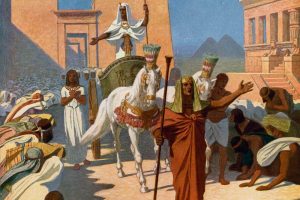Hiding and Revealing


Hiding and Revealing

Shalom,
Let us notice this time how the Torah deals with those areas that people might hide from others.
In this week’s Torah portion Shoftim the following verse appears:

תָּמִים תִּהְיֶה, עִם יְהוָה אֱלֹהֶיךָ
Thou shalt be whole-hearted with the LORD thy God (Deuteronomy 18:13)
There are only two instances in the bible, where a person is required to fulfill something “with” the Creator.
Another verse states:
הִגִּיד לְךָ אָדָם, מַה-טּוֹב; וּמָה-יְהוָה דּוֹרֵשׁ מִמְּךָ, כִּי אִם-עֲשׂוֹת מִשְׁפָּט וְאַהֲבַת חֶסֶד, וְהַצְנֵעַ לֶכֶת, עִם-אֱלֹהֶיךָ
It hath been told thee, O man, what is good, and what the LORD doth require of thee: only to do justly, and to love mercy, and to walk humbly with thy God. (Micah 6:8)
Says rabbi Pinchas of Koritz.
There are only two virtues,
- Being whole-hearted
- Being truly humble
where a person can pretend, hide his true character and demonstrate to other people that he possesses those virtues.
However, within himself he can be just the opposite of those.
He can be a liar and be full of pride.
Therefore, the Torah and prophet Micah tell us that in these two areas one needs to fulfill the requirements in relation to G-d and not in relation to people.
People might not notice the lack of authenticity, but G-d sees what is going inside each person and only in such framework, will the person be able to truly fulfill (or not) these requirements.
The verses (Deuteronomy 20:2-8) state that before the Jewish army went to war, an announcement was made that certain categories of people should return home:
He who has built a new house, but has not dedicated it; he who has planted a vineyard, but has not partaken from the fruits; he who has betrothed a wife, but has not married her.
Verse 8 reads:
וְיָסְפוּ הַשֹּׁטְרִים, לְדַבֵּר אֶל-הָעָם, וְאָמְרוּ מִי-הָאִישׁ הַיָּרֵא וְרַךְ הַלֵּבָב, יֵלֵךְ וְיָשֹׁב לְבֵיתוֹ; וְלֹא יִמַּס אֶת-לְבַב אֶחָיו, כִּלְבָבוֹ

“And the officers shall speak further to the people and they shall say: ‘Is there a man who is fearful and fainthearted?
Let him go and return to his house and let him not make the heart of his brethren faint as well as his heart.’ “
How is the fourth category related to the previous three categories?
Rabbi Yossi Haglili explains in the Talmud, that the fourth category refers to someone who fears that he is unworthy of being saved because of his transgressions, (which are not known to other people).
And he adds that this is the reason why the other three categories were told to go home.
These three groups were sent home, so that people would not know which individuals were leaving for which reasons and those who would leave the ranks because of their sins, would not feel embarrassed.
Thus, the Torah tells us to send home many soldiers in wartime in order to save those who have hidden sins from humiliation.
HEBREW CORNER
Now let us learn a few expressions with the word לב – heart.

מורך לב – MORAKH LEV – cowardice
בחפץ לב – BEKHEFETZ LEV – gladfully
רחב לב – R’KHAV LEV – generous person (lit. with a broad heart)
אכל את הלב – AKHAL ET HALEV – regretted (lit. ate his heart)
Shabbat Shalom,
Yoel & Orly

Planning to spend the holidays in Israel?
Don’t miss our H2 immersion courses and outdoor activities!
The ‘Holiday Hebrew’ (aka H2) course is a three-day immersion experience in which you will have an opportunity to both learn Hebrew and enjoy the Holiday atmosphere in Israel.
So if you are in Israel anytime between September 27 and October 22nd, don’t settle for anything other than making
Hebrew a part of your Israel experience!
For details please contact us at:
https://www.ulpanor.com/contact/
Many ask us for a permission to redistribute our newsletters. By all means, please do feel free to forward this newsletter to anyone you wish!
Access the archive of our previous posts at:
https://www.ulpanor.com/category/blog/
Subscribe to our newsletters on our website at the bottom of the home page:
And the LORD will take away from you all sickness;




